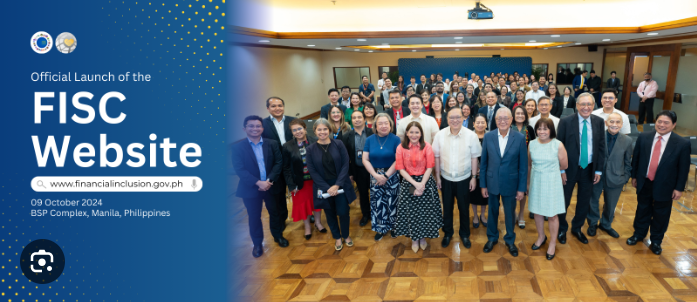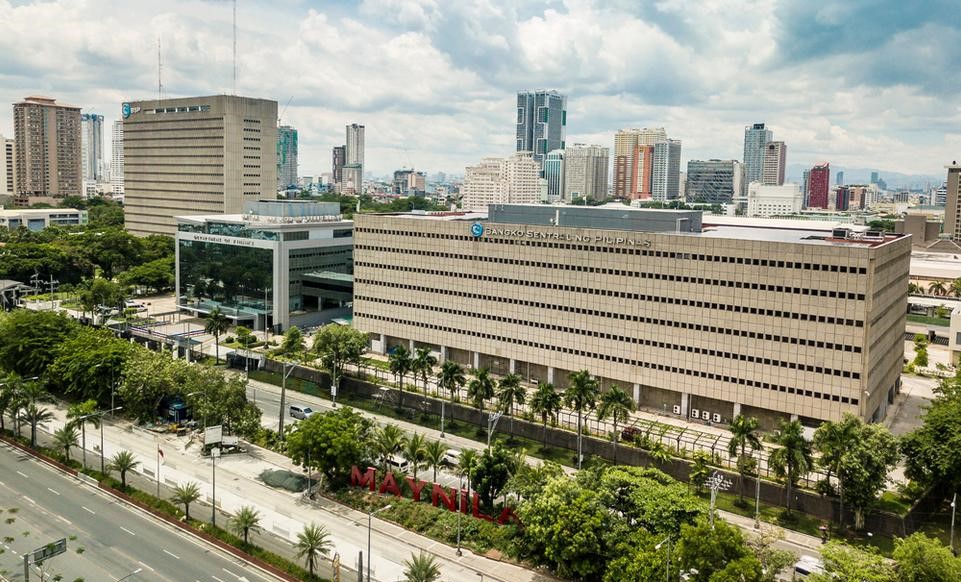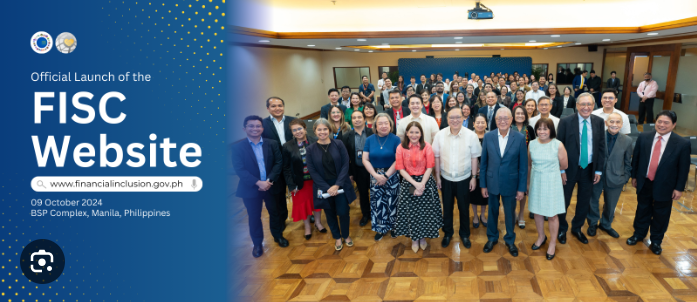Banking institutions are set to play a pivotal role in advancing financial inclusion across the Philippines as the Bangko Sentral ng Pilipinas (BSP) and its Financial Inclusion Steering Committee (FISC) unveil a new digital platform designed to bring essential financial services to underserved communities.
With the launch of the FISC website, a one-stop hub for financial inclusion resources, the Philippine banking industry stands poised to extend its reach, fostering a more inclusive economy that aligns with the country’s financial inclusion targets. This also marks a significant step forward in the nation’s goal of empowering all Filipinos through accessible financial tools and services.

Banking institutions will soon take center stage in financial inclusion as BSP Governor Eli M. Remolona (front row, 5th from right), BSP Deputy Governor Bernadette Romulo-Puyat (front row, 7th from right), and DICT Secretary Ivan John E. Uy (center) lead the launch of the FISC website to promote financial inclusion in PH. With them are members of the FISC, Monetary Board, and website content authors.
The website launch marks a significant milestone in the execution of the National Strategy for Financial Inclusion (NSFI), the overarching framework guiding the country’s financial inclusion initiatives. BSP Governor Eli M. Remolona, Jr. emphasized the critical role the platform will play in disseminating financial inclusion efforts to a wider audience, ultimately helping to transform the lives of millions of Filipinos.
“This platform will bring our efforts together to execute the National Strategy for Financial Inclusion (NSFI) to a broader audience,” said Remolona. “We hope the information and stories on the website inspire everyone — those who need it and those who can help provide it — to work together to advance the whole country’s journey toward financial inclusion and financial health.”
Banking industry to drive financial inclusion, economic progress

The FISC website represents a new frontier in the Philippines’ financial inclusion journey. It serves as a comprehensive resource for the latest regulations, issuances, and initiatives from the various agencies involved in promoting financial accessibility in the country.
By providing a centralized platform for information, the FISC aims to make financial services more accessible to individuals, particularly underserved sectors like micro, small, and medium enterprises (MSMEs).
BSP Deputy Governor Bernadette Romulo-Puyat highlighted the role of the website in supporting these efforts. “By making these resources accessible, we move another step closer to a more financially included and financially healthy Filipino population,” she said.
The FISC website’s inclusion of a “newsroom” and a testimonial corner aims to showcase stories of individuals and MSMEs who have benefited from financial inclusion initiatives. Through these success stories, the BSP and other stakeholders, including banking institutions, hope to inspire more Filipinos to participate in the formal financial system, which is essential to achieving financial resilience and economic progress.
Earlier this year, the BSP released a study showing that the outstanding loans of universal and commercial banks (U/KBs) in the country have grown at an accelerated pace in August this year, signalling sustained lending activity and the robust recovery of the banking sector despite the challenges posed by global economic uncertainties.
A collaborative push for financial resilience

The website launch is not just about providing information — it’s about promoting the collaborative approach of the FISC and its member agencies in pushing the financial inclusion agenda.
The FISC was established in 2016 under Executive Order No. 208, which positioned it as the inter-agency governing body responsible for providing strategic direction and oversight in the implementation of the NSFI.
It advocates for a whole-of-government approach, where various agencies work together to ensure that financial inclusion is part of the broader national development agenda.
Secretary Ivan John E. Uy of the Department of Information and Communications Technology (DICT), a key partner in this initiative, expressed his agency’s full support for the FISC’s commitment to making financial inclusion a national priority.
“The DICT fully supports the FISC’s commitment to making financial inclusion a national development priority. Through consistent collaboration, we can ensure that every Filipino gains meaningful access to resources, enabling them to achieve financial resilience and progress,” Uy was quoted as saying in a press release.
Empowering the banking industry for a wider reach
For the Philippine banking industry, the FISC website represents a valuable tool in extending financial services to more Filipinos. Banks and financial institutions can now access up-to-date regulations and initiatives that support inclusive growth, allowing them to align their products and services with national financial inclusion goals.
This is especially important for rural banks and smaller financial institutions, which often serve as the main source of financial services for underserved communities.
The platform also presents an opportunity for financial institutions to collaborate with the government and other stakeholders, fostering a more cohesive and streamlined approach to addressing financial exclusion. With the banking industry playing a critical role in enabling Filipinos to achieve financial resilience, the website will serve as a hub for valuable resources that can guide institutions in developing more inclusive products and services.
The launch of the FISC website is a major step toward achieving a more inclusive financial system in the Philippines. By providing a platform that consolidates information and highlights success stories, the website empowers both individuals and financial institutions to contribute to the country’s financial inclusion agenda.
With the support of the BSP, the DICT, and other member agencies, the FISC website promises to be a key driver in making financial services more accessible to all Filipinos. As the platform continues to evolve, it will play a crucial role in the country’s journey toward financial inclusion, helping to build a financially healthy and resilient population capable of contributing to sustainable economic growth.
For more information, visit www.financialinclusion.gov.ph.







